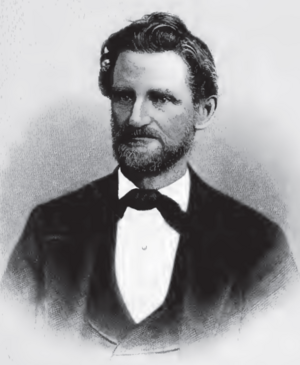Ferdinand Schumacher facts for kids
Ferdinand Schumacher (1822–1908) was a clever businessman from America. He was often called The Oatmeal King because he played a big part in starting companies that later joined together to form the famous Quaker Oats Company.
Contents
Early Life and Business Beginnings
Ferdinand Schumacher was born on March 30, 1822, in a place called Celle, which was then part of Hanover, Germany. His father was a merchant, which means he bought and sold goods. Ferdinand went to high school and then learned about the grocery business as an apprentice. This means he worked for someone to learn the trade.
When he was 28, Ferdinand and his brother Otto moved from Germany to the United States. He first tried farming for two years. Then, in 1852, he opened a grocery store in Akron, Ohio.
The Idea for Oatmeal
Ferdinand remembered that in Germany, he used to grind oats and sell them as a breakfast food. He thought this was a great idea for his new store in Akron. So, in 1854, Ferdinand Schumacher began selling his own oatmeal.
His oatmeal quickly became popular, and soon he was selling it all across the United States. To make more oatmeal, he rented space in 1857 next to the Ohio and Erie Canal. He used the canal's water power to run a mill for his oatmeal production.
Growing the Business
Ferdinand kept making his mill bigger and better. In 1858, he added machines to process barley, another grain. He continued to expand his factory, and by 1875, he even started using steam power to run his machines. This helped him produce even more oatmeal and other grain products.
Family and Community Work
In 1851, Ferdinand Schumacher married his cousin, Hermine Schumacher. They had seven children together, but only three of them lived to become adults.
Ferdinand was very involved in his community. He strongly believed in the temperance movement, which was a group that worked to reduce or stop the use of alcohol. He also supported the building of many churches in his area.
Public Service Efforts
Ferdinand Schumacher tried to get involved in politics to help his community even more. He ran for the position of Ohio Secretary of State in 1872 and again in 1882, but he did not win either time. In 1883, he also ran for Ohio Governor as a candidate for the Progressive Party, but he was not elected. Even though he didn't win these elections, it shows he cared about making a difference.
Images for kids




